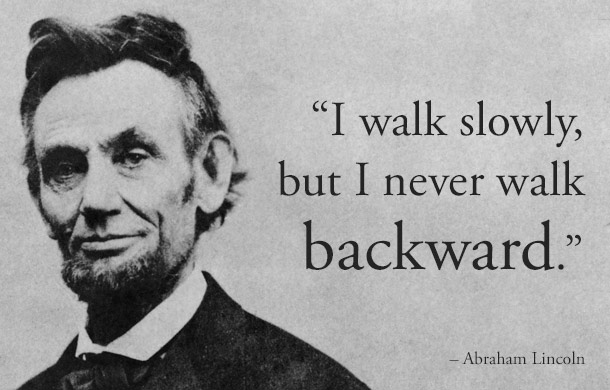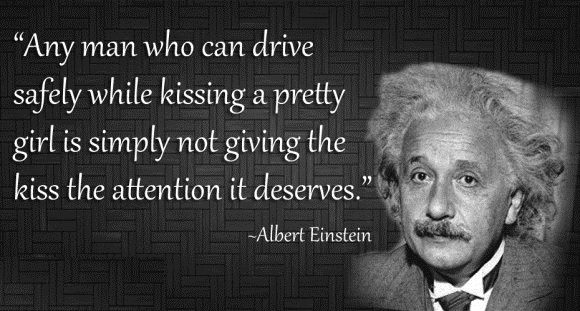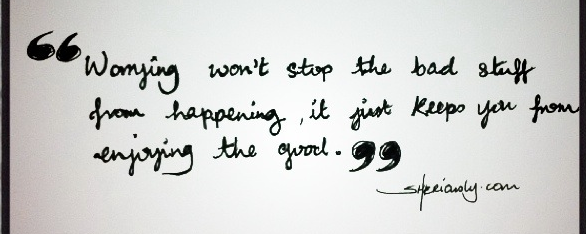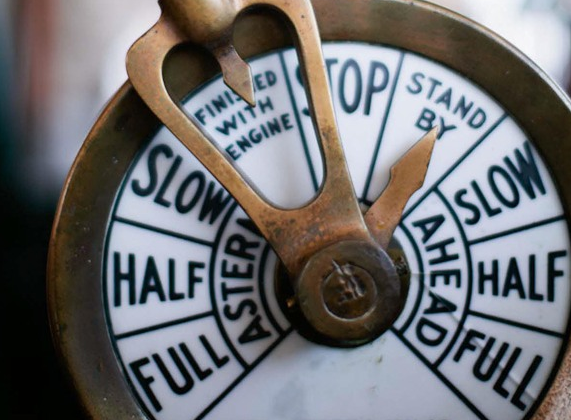 Are you running a fast-paced life hurrying from one thing to the next? If so, you are stressed and ineffective. Discover why slowing down is exactly what you need.
Are you running a fast-paced life hurrying from one thing to the next? If so, you are stressed and ineffective. Discover why slowing down is exactly what you need.
How to reduce stress: Live these 5 habits
Stress is a misunderstood superpower designed to help you deal with dangerous situations. These days, your superpower is out of control. For stress to once again be a superpower you must make the following five habits part of your life:

The five habits of a stress-free life
The previous post in RethinkingTruth’s The stress-free life” Series taught you how to Gain control. In the next five minutes you will learn to slow down and how doing so will reduce stress and increase your performance.
Fasten your seatbelts, we are slowing down!
Hurrying = stress
You probably know that humans are genetically designed to live as hunters and gatherers (we’ve only had 10 000 years to adapt to agricultural life while we lived for hundreds of thousands of years as hunters and gatherers). Think about this for a second: 50 000 years ago when our hunter and gatherer ancestors were living out in the wild, what would make them hurry?
 I think it would it be fair to assume that hunters and gatherers mostly hurried when they had to, for example when defending themselves against a predator or hunting a fast animal. Their brains perceived the unusual and sudden hurry as a danger signal and the stress superpower was initiated to deal with the challenge at hand.
I think it would it be fair to assume that hunters and gatherers mostly hurried when they had to, for example when defending themselves against a predator or hunting a fast animal. Their brains perceived the unusual and sudden hurry as a danger signal and the stress superpower was initiated to deal with the challenge at hand.
Even though we live in a much safer environment than our ancestors did, we hurry all the time. You might be late for work, kindergarten or dinner. Maybe you have too many things to do at once. Or, perhaps you simply want to get as much stuff done as heavenly possible before you leave for Easter holiday. You might even have hurried a few times today already. Am I wrong?
Unfortunately, your hunter and gatherer brain understands hurry as danger. When the human brain perceives danger it calls on its stress-superpower to help out. So, to reduce stress we have to stop hurrying.
But, is it possible to slow down without reducing your performance?
Slow down to reduce stress and increase performance
Simply put, human behaviour consist of three types: Perception, Thinking, and Movement. When reading this you are 1) focusing your attention on the screen and sensing the symbols I’ve written (perception), 2) translating these symbols into information (thinking) and 3) moving your eyes to see more symbols (movement).

To slow down we must adjust each type of behaviour.
Slow down your perception

Perception is your ability to sense the environment. This fundamental human ability consist of two main parts: paying attention and sensing. For the purpose of slowing down we are going to focus on attention.
These days the world is full of distractions screaming for our attention. Unfortunately, we are not good at knowing what to pay attention to and the consequence is that we constantly shift our attention; from what really matters, for example our children, to our phones and Facebook.
For reasons I’m yet to fully understand, constantly shifting your attention increases stress. I think the main reason for this is that attention shifts lead to changes in our thinking and movement. I’ll address these two types of behaviour below.
What’s beyond doubt is that frequently shifting your attention from one thing to another significantly reduce performance (if you are interested in details, start by reading “The Inner Game of Tennis”). For example, if you are with your children but your attention is shifting between them, the TV and the newspaper, your children can feel it and your “performance” as a mum or dad is reduced. Likewise, if you are reading a non-fiction book and you keep checking your email, your ability to learn and remember will go straight down the toilet.
So how do you go about slowing down your perception?
First, accept that paying attention to one thing at the time is important both from a stress and performance perspective. Second, stop paying attention to things that aren’t important in your life (if you don’t know what’s important to you I recommend reading “The four most important things in life” and “What’s your dream?”). Finally, focus your attention on what truly matters and maintain that attention for larger periods of time by avoiding distractions.
Slowing down your perception will not only reduce stress but will significantly improve your performance too.
Slow down your thinking

Simply said, thinking is 1) the little voice inside your head, 2) the images you see when remembering or imagining something, and 3) the sounds you “hear” that only exists inside your head (a song you can’t get out of your mind for example).
Constant thinking and worrying is one of the key causes of stress today. The more thoughts you have in your mind and the more rapidly your thoughts are shifting from one thing to the next, the higher your stress levels (if you are interested in details, start by reading “The way of the SEAL”).
In the last 30 years studies have also demonstrated the effect thinking has on performance. One of the key findings is that the more a person consciously thinks when performing, the poorer the performance. One of the reasons for this is that the more we think the less we are able to perceive. For example, when you are in a meeting thinking hard about what to say next, how able are you to truly hear what the person speaking is saying and take in the signals from his body language? Top performance requires a clear mind.
To slow down your thinking, start by becoming aware of how you think today. Then, practice mental silence (not thinking). Finally, practice replacing thoughts of worry, self-doubt and negativity with confidence, self-worth and positivity. Be patient and take your time. Doing so will reduce stress and improve your performance.
Slow down your movements

Movement is related to how you use the muscles in your body. The issue most of us have today is that we constantly hurry our movements and tighten our muscles. As we discussed previously, this hurried behaviour signals “danger” to our hunter and gatherer brains and consequently stress is increased.
Unnecessary hurrying and muscle tension reduce performance too. Such movements reduce your ability to perceive, think and move. For example, think of a time when:
- you were in a hurry and walked straight past a friend (reduced perception)
- you were in a hurry and dangerously overtook another car (reduced thinking)
- you were tensing your muscles and you completely missed the golf shot (reduced movement)
To slow down your movements start by becoming aware of your breathing, how relaxed your muscles are and the speed at which you walk and talk. Then, practice slow breathing by inhaling slowly into you stomach feeling your stomach expanding and then exhaling slowly feeling your stomach shrinking. Next, practice walking slowly, especially to and from work and relax your body as much as possible while doing so. Finally, practice speaking at a slower pace and relax your muscles in almost every situation.
How to start slowing down
If you’re still reading you’ve learnt a lot during the last few minutes. You understand that hurrying creates stress, that there are three types to human behaviour you need to slow down to reduce stress (perception, thinking, movement), and that slowing down in these areas will increase your performance too.
To start slowing down I recommend taking the following three steps:
1. Give yourself enough time
The biggest mistake people are doing, especially hot-shot business executives, is to make decisions that guarantee you will be short on time. Don’t make that mistake! Tell your boss you will have that presentation ready in two days, not tomorrow. Plan your travelling so that instead of arriving at the airport/bus station/train station at the last minute, you’ll have time to buy a coffee and do some reading. Say “no” to doing things you don’t have time for.
Remember, if you under-promise, you can always over-deliver. The opposite isn’t true.
2. Do one thing at the time
Multitasking = increased stress and poor performance. Instead, focus your attention at one thing at the time. Never check your email when you’re reading or making a presentation. Never use your phone when spending time with your kids. Never think about work when hanging out with your friends.
Remember, keep your mind where your body is and do one thing at the time.
3. Silence your mind
A silent mind = a stress-free, performance enhanced you. To quiet your mind I recommend the following approach: 1) Find a quiet place and sit down keeping your back straight. 2) Relax every muscle in your body (don’t forget your jaw :). 3) Start breathing slowly into your stomach (when you are breathing correctly you can see your belly going out when you breathe in and in when you breathe out). 4) Focus your attention on the breathing. 5) Whenever a thought comes into your mind, don’t worry about it, just let the thought go. Do this for five minutes or more every day. It’s a game changer.
For more on how to live a stress-free life, check out the two other post in the series:
Thanks for reading,
Bjarte
Notes: I’ve borrowed these pictures: Accelerator, Hunters, Einstein, Time, Lincoln. Thanks.

Great post Bjarte! Its interesting that the three things we need to focus on to achieve reduced stress are also the same areas we need to control to achieve in other areas of our lives, sport for instance. I always achieve my best results in a sport when I am immersed in the moment… high perception, a clear mind to interpret these inputs and muscles are responsive not tense. I also assume that those really great times shared with friends are enjoyed so much because our mind achieves all of these stress reducing steps naturally??
Thanks a lot Anthony.
I understand what you’re saying about sports, it’s the same way for me. The friends question is interesting. I think there are many reasons why we enjoy being with our friends so much. I do think that when we’re with friends our attention automatically becomes focused on them instead of wandering around from one thing to the next. I also think that we tend to think less when we’re with people we like and “feel” and exist more. Both of those tend to reduce stress.
I’M still learning., You mean people must concentrate to what they are doing. You are right. Most of people we fail because of doing lot of things at a time.